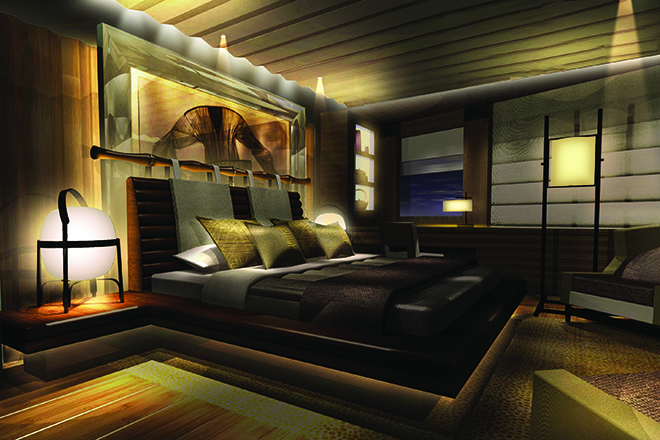Founded in 2014 by German-trained architect, Beatrice Witzgall, LumiFi is a design and technology-centric company enabling people and businesses to unlock the full potential of connected lighting through a new lighting control software.
The revolutionary app incorporates LED wireless bulb technology and the expertise of award-winning lighting designers, to offer customisable lighting moods to hotel guests, residences, and corporate conference rooms.
The intuitive technology enables users to experience fully composed and individualised lighting scenes, by turning on and altering the tone of light in rooms with a simple tap of their smartphone. LumiFi’s patent-pending algorithm generates lighting scenes by applying different values of lighting to different fixtures in one user-friendly interface.
“With the Internet of Things coming to the mass market, we saw an opportunity to bring sophisticated and smart lighting to everyone,” says Beatrice Witzgall, founder and CEO of the New York-based startup. “I believe that with an easy-to-use app to control illumination, fumbling to find the light switch in the dark will someday be a distant memory.”
The app uses scientifically-proven lighting hues to create various preset moods, with additional customisable options. Preset options include Relax, which uses hints of warm white to balance the mood and amber to help the mind unwind; Focus, which combines the direct light of an office with the cool glow of a library and the warm glow of a home; and Romance, marrying deep blues and candlelight golds to create the most flattering and passionate lighting mood.
Although connected lighting solutions have been integrated by early adopters in the home consumer market, LumiFi takes pride in its assertion that it is the first of its kind to bring this concept into hospitality settings through a personalised app. Forward-thinking hotel owners are considering the many benefits of wireless-controlled LED technology to create a sense of identity and ambiance.
By turning the guest’s own smartphone into a convenient remote, achotel only needs to outfit rooms with LED light bulbs or switches with a wireless receiver, which are then connected to a WiFi bridge. The guest’s smartphone communicates with the bridge via the hotel’s WiFi network, enabling light control.
This human-centric lighting provides guests with a higher level of service and engagement, enhances loyalty programs and acts as a brand differentiator, separating a property from its competition. Additional benefits include increased energy efficiency – by replacing old light bulbs and systems with modern and more efficient LED technology, hotels can save significant amounts on their energy bill and also become eligible for tax and energy rebates.
“In an area that can sometimes be a bit of a design afterthought, lighting is actually a field that offers innovative and exciting possibilities to enhance the interiors,” adds Beatrice. “The key is in how lighting interacts with people and spaces, and how it transforms to meet their needs. Lighting addresses the unconscious in an intangible way, and affects how people interact within a space.”



